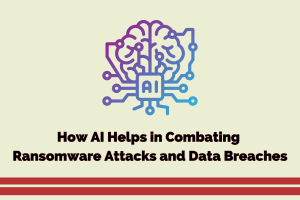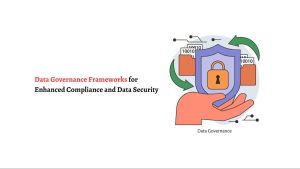10 Ways to Improve Your Fintech App Security

The global fintech market is growing at a breakneck speed. The value of this market sector was USD 127.66 billion in 2018, according to a report issued by market research firm The Business Research Company, and is expected to grow to USD 309.98 billion in 2022.
With the rise of financial phenomena around the world, Fintech app development is on the rise, and many new businesses are turning to Fintech solutions. Information is disseminated globally through various Fintech organisations in the form of promotional activities in collaboration with end-users, funding investors, and banking authorities.
Given Fintech’s explosive growth, now is an excellent time for businesses to update their Fintech applications and put them to work to reap financial rewards. However, maintaining a company’s security and preventing hacking is becoming increasingly important in order to attract consumer interest in a Fintech application.
Banking services account for the lion’s share of the fintech market. According to Jupiter Research, by the end of 2021, over 2 billion people will utilise mobile devices to access banking services. According to the survey, mobile banking apps have already begun to surpass internet banking in some markets.
This number is only expected to rise as more customers demand the convenience of accessing financial services via their mobile devices. However, there is a significant drawback. Fintech apps store sensitive information about users and are vulnerable to data theft. Users expect financial service providers to protect their data with the utmost care.
One should start with security as the utmost concern for developing fintech app ideas, which is a difficult, time-consuming, and, most importantly, costly endeavour. That is, if your team has relevant experience with FinTech security requirements and is aware of them. If it doesn’t, your project has a good chance of going over budget and ahead of schedule.
For anyone seeking to develop successful fintech app ideas, data security and fintech app security are important subjects to consider. Here’s how software development teams ensure that their finance apps have a high level of security while still performing well.
Ensuring a secure and compliant fintech app development?
Prioritize app security over a smooth user experience if you want to add value to your fintech app development. Users need bank accounts with high safety features, not a seamless user experience.
- Storing relevant data: This concept is based on the idea that sensitive information cannot be taken if it does not exist. To make a payment, for example, credit and debit card numbers are not required. Payment data leaks can be reduced if this information is not retained.
- Defining permissions: Fintech applications are complex, with many features that users are unable to access. A proper framework for defining roles and granting permission must be in place. Developers can employ user-friendly and simple-to-implement methods such as role-based access control (RBAC).
- Strong passwords: Fintech applications should require their users to create strong passwords with a large character set. Basic security guidelines, such as requiring a minimum number of characters, requiring the usage of special characters, and changing passwords at regular intervals, should be strictly adhered to.
- Using two-factor authentication: The one-time code, which can be sent via SMS or email, is one of the most widely used two-factor authentication mechanisms. Customers can also use a push notification system, which allows them to verify their identity with a single touch.
- Alternate authentication: While passwords are still the most frequent type of authentication, tokens, smart cards, and even biometric systems are coming up. Facial recognition software and retina scans are two other emerging technologies. A good authentication system doesn’t rely on just one of these methods.
- Keeping clean logs: User activity logs should be kept in a logical and orderly manner. Transaction activities, user-ID data, IP addresses, geolocation, and other critical information must all be recorded. These logs are crucial pieces of information for doing a search analysis in the event of a breach.
- Constant monitoring: Security personnel should be on the lookout for unusual transactions and stop them in their tracks. All transactions fall into one of three threat categories: low, medium, or high. If a transaction with a high threat level is launched, the app system should automatically suspend the activity and notify the company’s technical team, who should investigate the logs.
- Integrate a secure code: To check for vulnerabilities, the code must be rigorously inspected on a regular basis. The code must be quick and simple to switch between devices and platforms. Make sure the code is adaptable and portable across devices and operating systems so that software programmers can act swiftly in the event of a data breach.
- Have a solid API security strategy: Implementing an automatic API token rotation is one of the best practises for API security. The rotation of API tokens should be done on a regular basis. Because APIs control functionality, content, and data, ensuring API security is crucial when developing secure financial software.
- Firewalls and antivirus solutions: Using a mix of strong firewalls and antivirus solutions to secure your fintech app is a crucial first step. Because they offer superior inspection capabilities and control over specific apps in a network, modern firewalls are more powerful than traditional firewall solutions.
Summing up
Fintech app ideas are without a doubt going to become essential in the future. Users can now carry out the financial transactions and processes sitting in their homes on their mobile devices. However, the industry faces numerous challenges in protecting user data and satisfying compliance goals. Customers are hesitant to use fintech apps because of security concerns.
Follow these ten steps to ensure the security of your app, and you’ll soon discover that it’s a sound financial investment. The more secure the software, the better the safety of consumer data, and the more likely it is that more people will take advantage of the opportunity to download your app.
Above all, it is crucial to work quickly and respond to the needs of clients, because security is critical in fintech and banking apps. This is particularly evident in the case of mobile applications, which require extremely high levels of protection and security in order to prevent data loss in the event of a leak or a hacker attack.
Consider hiring a reputable software development business for a safe financial app development that doesn’t require any more resources.
Author Bio:
Andrea Laura is a very creative writer and active contributor who loves to share informative news or updates on various topics and brings great information to her readers. Being writing as her hobby, Andrea has come out with many interesting topics and information that attracts readers to unravel her write-up. Her content is featured on many mainstream sites & blogs.






